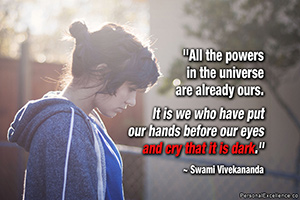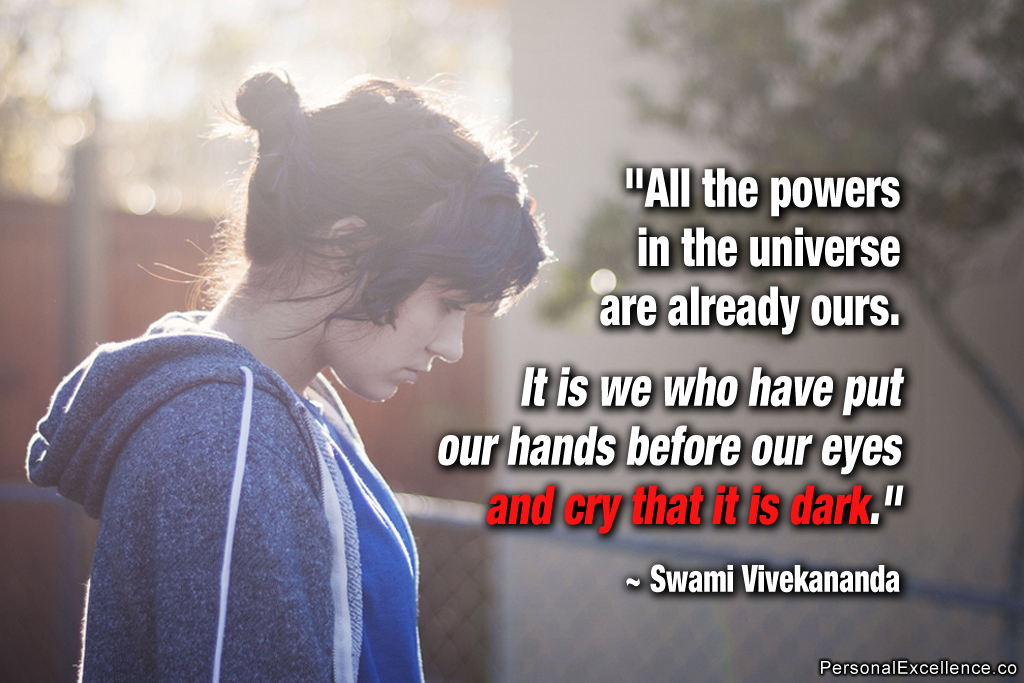
(Image: Peggy Reimchen)
“Hi Celes, I’d like to know how we can let go of the past issues (be it hurtful or disappointing ones). I acknowledge the steps to letting go but certain thoughts still surface like a repeating process. Is there such thing as letting go forever?” — Rine
Hi Rine, firstly, yes – one can let go forever; else it wouldn’t be called letting go! Someone who still harbors negativity about a past issue or experiences resurfacing thoughts every now and then (that’s outside of his/her control) hasn’t let go yet. If you experience a situation where certain thoughts surface on and off, that means the letting go process has not been completed.
How does one know when he/she has truly let go of something?
- When thoughts of the issue no longer surface out of the blue, even when you’re not thinking about it. It’s a past memory which you think about as and when you want to.
- When there are no feelings of negativity, sadness, disappointment, hurt, etc attached with the situation. Only a state of neutrality. (Note that neutrality and jadedness are two completely different things. Neutrality is a clean state with no attachments, no misgivings, no hang-ups. Jadedness is the result of blocking off one’s emotions.)
- When you have addressed all your grievances surrounding the issue, be it internally or externally.
How does one truly let go then?
I covered this in detail in the exercise for 30BBM Day 25: Forgive a Person. Basically, it involves digging into your grievances to the point where (a) you fully understand the source of your grievances (b) you obtain resolution on them. This resolution can be either internal, external, or both.
For example, let’s say there’s a past disappointment that plagues you every now and then. Rather than tackle it head-on, you push it away as a form of avoidance or (b) you cover over the disappointment with a positive emotion (say, via positive affirmations).
While either method gives you relief, it’s only temporary. After some time, the feeling of disappointment resurfaces. At this point, you can either do (a) or (b)…. again. The problem is, this only provides temporary relief again, before the same feeling resurfaces all over. And it will continue to do that like a broken record, till the day it is addressed.
Think of unresolved grievances like cork pieces on water – you can push them down and they will disappear – making it seem like everything’s okay, but it’s a matter of time before they float back up and create ripples throughout the water, disrupting whatever equilibrium you were trying to establish.
To resolve this permanently, you need to get to the root of your grievance. In short (from the exercise on 30BBM Day 25: Forgive Someone):
- Write down the thing/incident that’s bothering you.
- Identify what’s bothering you about this thing/incident. Write as many things as possible.
- Probe into your answers from #2 – Dig as deep as you can. This is to uncover the root cause. Don’t stop till you arrive at an aha moment. (Be sure to read my article on addressing root cause vs. effects so you know how to differentiate between a root cause and an effect.)
- Create a plan to address that moving forward.
Almost all my self-realizations I post at Personal Excellence have pretty much been arrived at via the exercise I created above. For example, my realizations in the parent series, the moving on series, procrastination series, the best friend guide, and so on.
Bear in mind that letting go isn’t a binary, one-off event. See it as a process. Say you process X% of an issue via 4 steps above. While thoughts of the same issue may resurface thereafter, you may find that the thoughts are now of a different aspect of the situation compared to before. You may also find that the thoughts now surface on a lesser frequency and with a lower intensity.
The next step, then, is to repeat the exercise above, so as to gain new resolution on the matter. Dig deeper to achieve new realizations. Take action on your new found lessons.
The key is to keep doing that as long as you experience any repeating thoughts on the problem. The day when the situation stops surfacing in your mind (outside of your desire), would be the day when you’ve finally let go of the whole situation. Bit by bit, step by step – it’s a matter of time before you reach there.
Be sure to read the following articles:
- Create Real Change In Life: Address Root Cause vs. Effects
- How To Move On From A Relationship (series)
- Be a Better Me in 30 Days, Day 22: Mirror an Annoyance
- Be a Better Me in 30 Days, Day 25: Forgive Someone









 Thanks for reading. If you like my free articles, join my private email list and get my latest updates and articles sent right to your inbox.
Thanks for reading. If you like my free articles, join my private email list and get my latest updates and articles sent right to your inbox.